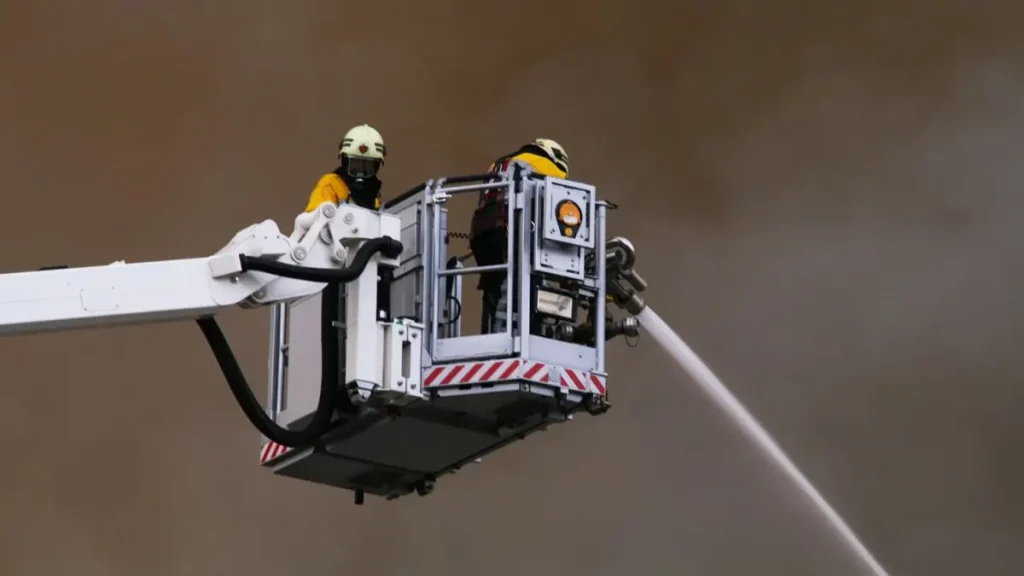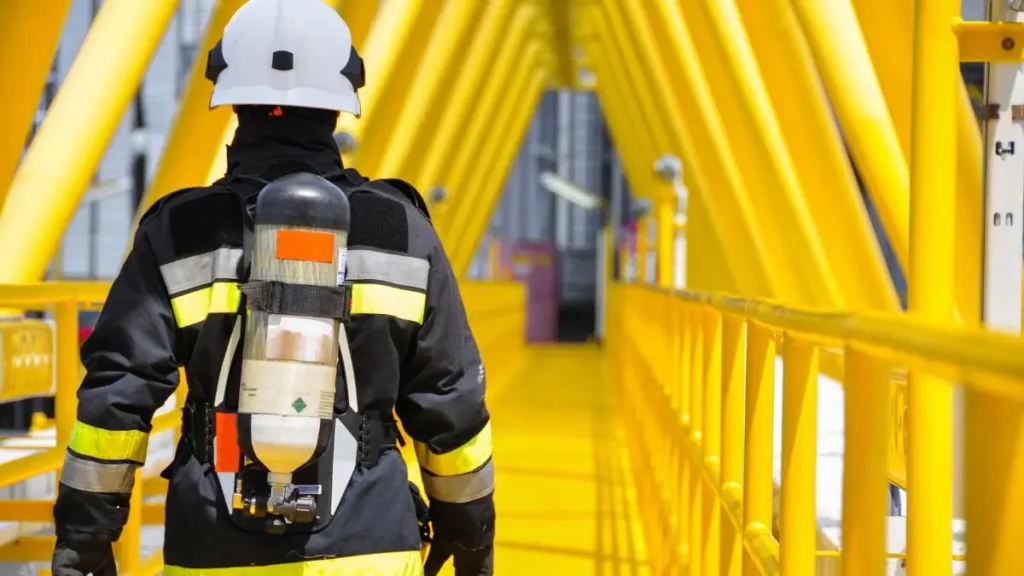Southeast Portland House Fire Destroys Property, 3 People Displaced
I still remember reading about this fire and feeling a knot in my stomach. Around 2:40 p.m. on Wednesday, a house fire broke out in Southeast Portland’s Brentwood-Darlington neighborhood. What started in a single-story manufactured home quickly spread, threatening a neighboring house and displacing three adults.
Thankfully, no one was injured, but the images of flames licking through windows and smoke pouring from the roof were a stark reminder of how quickly life can change.
As someone who’s covered fires and emergencies before, I can tell you that these moments test both the residents and the first responders. Over 50 firefighters from Portland Fire & Rescue and Clackamas County Fire District rushed to the scene, using gable-end cuts to safely access the attic where the bulk of the fire had taken hold. Within just 30 minutes, they managed to get both homes under control—a testament to their skill and coordination.
For you, reading this, it’s more than just a news story. It’s a reminder of how fragile safety can be and how vital quick, professional action is in these emergencies. And while we wait for more details on the exact cause—currently ruled accidental—it’s worth reflecting on what we can do in our own homes to prevent a similar situation.
The Human Toll – Families Displaced
When I read that three adults were left without a home after this fire, it hit me. Homes are more than structures—they hold our memories, routines, and sense of safety. According to KGW, the Red Cross stepped in immediately to support the displaced residents, helping them find shelter and essentials while they regroup.
I can’t help but think about the emotional strain these families must be feeling—having to leave a home in flames, uncertain about their possessions, and worrying about what comes next. For you reading this, it’s a reminder that disaster preparedness isn’t just about insurance or smoke detectors; it’s also about community and knowing where to turn in a crisis.
It’s practical to note that local shelters, the Red Cross, and even neighborhood groups can make a tangible difference in these moments. If you haven’t already, consider familiarizing yourself with nearby resources—because when something unexpected happens, every minute counts.
Firefighting Efforts – How They Battled the Blaze

I always admire the precision and bravery of firefighters in situations like these. When this fire spread from one home to another, crews had to think fast. The first home’s roof had sagged due to flames in the attic, making it too dangerous to attack directly.
Rick Graves from Portland Fire explained they used gable-end cuts to safely reach the heart of the fire.
Over 50 personnel from Portland Fire & Rescue and Clackamas County Fire District were on the scene, coordinating seamlessly to control the blaze in about 30 minutes. From my perspective, seeing such teamwork is inspiring—it’s not just about extinguishing flames, it’s about protecting lives and the community.
For you, the takeaway is that fires are unpredictable, and professional training matters. Preparing for emergencies at home—like clear exits, smoke alarms, and fire extinguishers—gives you a chance to respond safely if the unthinkable happens.
Just like the recent Windham home fire under investigation, rapid response and coordination between multiple fire units are key to preventing further property damage and injuries.
The Cause and Investigation – Accidental But Important
So what caused this fire? As of now, Portland Fire has determined it was accidental, though the exact details are still under investigation. Fires in homes can start in countless ways—faulty wiring, unattended cooking, or heating devices.
I’ve seen too many stories where assumptions or rumors spread faster than facts. That’s why relying on verified sources—like Portland Fire statements—is crucial. For readers like you, this section isn’t just about curiosity; it’s about understanding risks and learning from them.
While the investigation continues, think about how you can reduce fire hazards in your own space. Check smoke detectors, keep flammable items away from heat sources, and maintain electrical systems regularly. Small steps can prevent large tragedies.
Accidental fires, similar to the Little Cypress house fire, remind us how quickly small oversights can escalate into major emergencies.
Fire Safety Lessons – What You Can Learn
Every fire, even when no one is injured, carries lessons we can apply. Here’s what I’d personally focus on:
- Smoke Detectors & Fire Alarms: Test them monthly and replace batteries yearly.
- Attic & Roof Safety: Clear debris and ensure no exposed wiring or flammable materials.
- Evacuation Planning: Know your exit routes, and rehearse them with family or housemates.
I also encourage you to check out local workshops or awareness programs. Portland Fire & Rescue runs fire safety education that can make a real difference. Reading about this fire, I realized how quick, coordinated action saves lives—not just firefighting but your readiness as well.
Community Response – Solidarity in Action

What strikes me most about this incident is how the community stepped up. From Red Cross support to local neighbors helping displaced families, it’s a reminder that even when disasters strike, people come together.
For you, this is a practical takeaway: knowing your neighbors and local community resources isn’t just “nice to have,” it’s critical in emergencies.
If you’re looking to help, consider contributing to local funds, volunteering, or simply checking in on neighbors during crises. Small gestures can have a big impact.
If you want real-time updates and quick safety tips from your community, many residents are sharing alerts and guidance through local WhatsApp groups—it’s a great way to stay informed during emergencies.
Why Fires Spread So Fast – Understanding the Danger
Reading the technical aspects of this fire made me realize how deceptively fast flames can spread. In this case, flames jumped from the first home’s attic to the neighboring yard and structure. The roof sagging and attic involvement meant firefighters had to adapt tactics quickly to prevent total destruction.
For you, the practical lesson is to understand how fires behave in homes. Attics, roof spaces, and cluttered yards can accelerate a fire. Regular home inspections, proper storage of flammable items, and awareness of potential weak spots in your house can literally buy time in an emergency.
Think of it this way: being proactive can keep you, your family, and your home safe, while firefighters tackle the unpredictable parts.
Instances like the Raleigh home engulfed in flames show how quickly fire can move through connected spaces if not contained early, emphasizing the importance of home inspections.
Staying Safe and Engaged – Lessons from Southeast Portland
After reading and analyzing this fire, the biggest takeaway I have is about preparedness, community, and awareness. Fires are sudden, unpredictable, and can change lives in minutes. But there’s a lot we can do to reduce risks and help others when disaster strikes.
For you, I encourage three concrete actions:
- Check your home for fire hazards today—smoke alarms, wiring, and attic safety.
- Know your community resources—shelters, Red Cross, local emergency contacts.
- Engage your neighbors and family—share emergency plans and support one another.
Have you thought about your own fire readiness? I’d love to hear what steps you’re taking or what challenges you face in preparing for emergencies. Sharing experiences can make everyone a bit safer—and more aware—when accidents happen.
For more stories on home safety and fire incidents, visit our Home Incidents category to stay informed and prepared.
Disclaimer: The information in this article is based on verified reports from Portland Fire & Rescue and local news sources as of the date of publication. Details may change as the investigation continues. The publisher is not responsible for any inaccuracies or updates that occur after publication.


